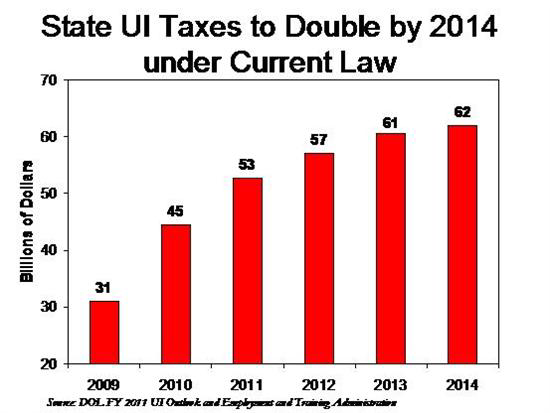Last month, I talked about “credit reduction states,” where employers face increased FUTA tax rates on form 940 of their federal unemployment annual tax return. As I said in last month's blog, there's not much you can do to reduce your FUTA rate.
This month, we'll look at state unemployment tax, or SUTA. Unlike FUTA, SUTA offers employers in many states a way to reduce their tax rates in 2014. It's called a “voluntary contribution.”
A voluntary contribution is essentially an advance payment on next year's SUTA tax. They're allowed in 26 states. And in many cases, making a voluntary contribution this year can lower your SUTA rate next year. This is due to the fact that in these states, each employer maintains their own individual balance of SUTA funds. Each employer's SUTA tax rate is determined in part by their balance, and in many cases, a higher balance results in a lower rate.
For example, in California, employers can use voluntary contributions to reduce their SUTA rate by up to three rate steps (a rate step is equal to a fraction of one percent).
Here's the list of states that allow voluntary contributions, along with each state's contribution deadline:
- Arizona – January 31
- Arkansas – March 31
- California – March 31
- Colorado – March 15
- Georgia – 30 days after notice
- Indiana – 30 days after notice
- Kansas – 30 days after notice
- Kentucky – 20 days after notice
- Louisiana – 30 days after notice
- Maine – 30 days after notice
- Massachusetts – 30 days after notice
- Michigan – 30 days after notice
- Minnesota – 120 calendar days after January 1
- Missouri – January 15
- Nebraska – January 10
- New Jersey – 30 days after notice
- New York – March 31
- North Carolina – 30 days after notice
- North Dakota – April 30
- Ohio – December 31
- Pennsylvania – 30 days after notice
- South Dakota – March 27
- Texas – 60 days after notice
- Washington – February 15
- West Virginia – 30 days after notice
- Wisconsin – November 30
It's important to note that some states impose restrictions that can affect your ability to reduce your individual rate. For example, some states (including California) don't allow voluntary contributions when the state is using tax schedules E or F.
If you want to determine whether a voluntary contribution could reduce your clients' SUTA rates next year, it's a good idea to contact your state's unemployment office. Ask them for the calculation for your state, and for each client's individual situation. It just might save your clients some money next year. Be advised, though, that most voluntary contributions are non-refundable. So you'll want to be absolutely sure that a contribution will reduce next year's rate before you make it.
———–
James Paille is the director of operations for myPay Solutions at Thomson Reuters, and has been an executive manager in the payroll service industry for over 30 years, specializing in managing multi-location offices.
Thanks for reading CPA Practice Advisor!
Subscribe Already registered? Log In
Need more information? Read the FAQs
Tags: Payroll Taxes




